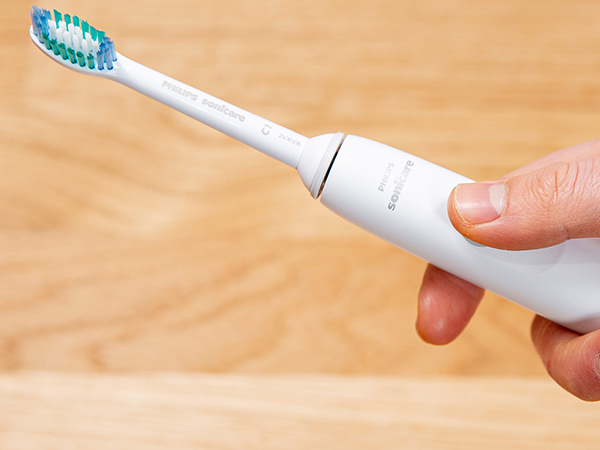How Often to Replace Your Electric Toothbrush
|
Mar 13, 2024 - By the dedicated team of editors and writers at Newsletter Station.

|
Electric toothbrushes have become a popular choice for maintaining good oral hygiene. Compared to manual toothbrushes, they offer convenience and efficiency in cleaning teeth. However, like any other tool, electric toothbrushes don't last forever.
Knowing when and how often to replace your electric toothbrush is essential to ensure optimal dental care. In this blog, we'll discuss the factors influencing when to replace your electric toothbrush and provide some helpful tips to maximize your dental investment.
Factors Influencing Electric Toothbrush Replacement
- Wear and Tear:
The most apparent reason to replace your electric toothbrush is wear and tear. Over time, the bristles on the brush head become frayed and worn down, reducing their cleaning effectiveness. Inspect the bristles regularly; if you notice significant wear, it's time for a replacement.
- Brush Head Indicator:
Many electric toothbrushes come equipped with a brush head replacement indicator. This feature usually activates after about three months of regular use, signaling that it's time to swap out the old brush head for a new one. Following this guideline is a reliable way to ensure your toothbrush continues to clean effectively.
- Battery Life Decline:
Electric toothbrushes are powered by rechargeable batteries. The battery's ability to hold a charge may diminish as time passes. If you notice that your electric toothbrush no longer holds a charge for an adequate amount of time, it's a sign that you may need to replace it.
- Reduced Cleaning Performance:
If your electric toothbrush used to provide a powerful and efficient cleaning experience but has now become less effective, it indicates that it might be time for a replacement. Your oral health should not be compromised due to a poorly performing toothbrush.
- Hygiene Concerns:
Electric toothbrushes are not immune to bacteria and germs. Even with regular cleaning, the brush head can accumulate bacteria over time. If you've had your electric toothbrush for an extended period, it may be wise to replace it for hygiene reasons.
Tips for Extending Your Electric Toothbrush's Lifespan
- Rinse After Use:
Always rinse your electric toothbrush thoroughly after each use to remove toothpaste residue and bacteria. Allow it to air dry before storing it in a clean and dry environment.
- Replace Brush Heads Regularly:
Follow the manufacturer's recommendations for replacing brush heads, typically every three months or as indicated by the brush head replacement indicator. Using a fresh brush head is essential for effective cleaning.
- Store Properly:
To prevent moisture buildup and bacteria growth, store your electric toothbrush upright in a well-ventilated area. Avoid covering it with a cap or a closed container when damp.
- Clean the Handle:
Occasionally, wipe down the handle of your electric toothbrush with a damp cloth to remove any residue or grime that may accumulate.
- Be Gentle:
Avoid excessive pressure while brushing. Let the electric toothbrush do the work, and apply enough pressure to clean your teeth effectively without damaging the brush head or your teeth and gums.
Your electric toothbrush is an essential tool for maintaining excellent oral hygiene. Knowing when and how often to replace it ensures that you continue to enjoy its benefits. Regularly inspect your toothbrush for signs of wear, follow the manufacturer's recommendations for brush head replacement, and keep it clean and well-maintained.
By doing so, you'll not only extend the lifespan of your electric toothbrush but also safeguard your oral health for years to come.
Unlock the Power of Email Marketing
Harness the potential of email marketing with Newsletter Station. Reach your target audience, drive conversions, and achieve your business goals.
|
More Blogs
| Apr 24, 2024 |
Why Your Teeth Are Turning Yellow
|
| Apr 17, 2024 |
Common Reasons for a Toothache
|
| Apr 10, 2024 |
The Best Ways to Prevent Gum Disease
|
| Apr 3, 2024 |
The Many Benefits of Regular Dentist Visits
|
| Mar 27, 2024 |
Treatment for Nighttime Teeth Grinding
|
| Mar 20, 2024 |
Tips for Helping a Teething Baby
|
| Mar 13, 2024 |
How Often to Replace Your Electric Toothbrush
|
| Mar 6, 2024 |
What to Do If You Chip a Tooth
|
| Feb 28, 2024 |
Home Remedies for a Canker Sore: Natural Relief at Your Fingertips
|
| Feb 21, 2024 |
The Best Vitamins for Healthy Teeth
|
| Feb 14, 2024 |
Common Causes of Bad Breath
|
| Feb 7, 2024 |
Ways to Find Relief from Tooth Sensitivity
|
|
|